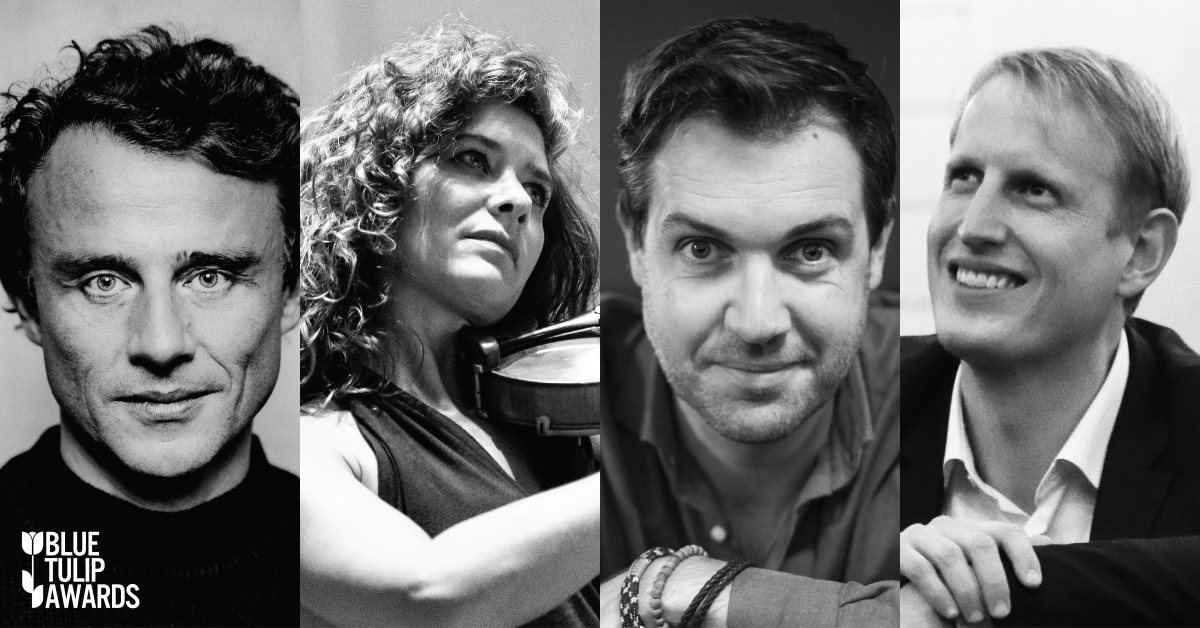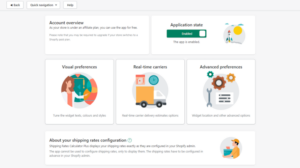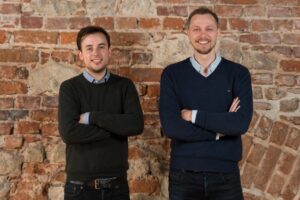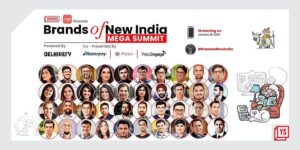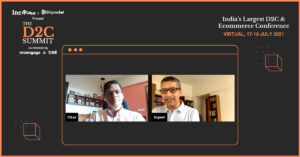For startups and scaleups, change is the only constant. It’s a fast-paced world in which markets are disrupted and companies scale up or fade away. How do you apply that mindset to an industry that’s been around for – literally – centuries? The world of classical music and theatre has been thoroughly disrupted last year by the pandemic. How did that prompt innovation?
Innovation in culture
Last year has been rough for the world of arts and culture. An industry primed to bring people together suddenly found itself in a world where people literally couldn’t get together. It prompted a need for change well beyond the cultural world. It’s why companies like Accenture take responsibility. With the innovation competition Blue Tulip Awards the company is currently looking for the most groundbreaking and sustainable innovations and their impact reaches beyond that, well into the world of arts and culture.
Here are the ten top international startups shortlisted for the 2021 Future Hamburg Award
For instance for world-famous classical music venue Concertgebouw in Amsterdam and Internationaal Theater Amsterdam, Accenture set up design thinking workshops to ideate and come up with the next steps on change questions for the organisations they support.
And change there was last year. A lot. How does the world of arts, classical music and theatre foster innovation in a time when all doors are closed? Job Noordhof of the Royal Concertgebouw in Amsterdam, Wouter van Ransbeek and Maurits Musch from Internationaal Theater Amsterdam and violinist Lonneke van Straalen of Pynarello share their vision.
Unprecedented situation at Royal Concertgebouw
Job Noordhof took the time during the lockdown to read up on the rich history of the place he works at. As head of marketing, communication and sales at the Royal Concertgebouw in Amsterdam, it gave him some perspective of the challenges they were facing. He was surprised to learn that the current situation, in which The Concertgebouw is forced to close its doors, has only occurred once. “Even during the Spanish flu it remained open”, says Noordhof. The majestic venue only closed its doors once before. During the ‘hunger winter’, the final months of the nazi occupation during the Second World War.
Right now, The Royal Concertgebouw hasn’t been able to operate at full capacity since March last year. An unprecedented situation for one of the world’s most renowned classical music venues. The 133-year-old building may not feel like the most agile and innovative environments. But when a crisis occurs, creativity spawns, says Noordhof.
Forced to evolve
“COVID has helped us to move towards broadcasting our concerts online. We’ve done many online live streams. This whole situation makes you incredibly creative and that has mostly manifested itself online. It forces you to evolve.”
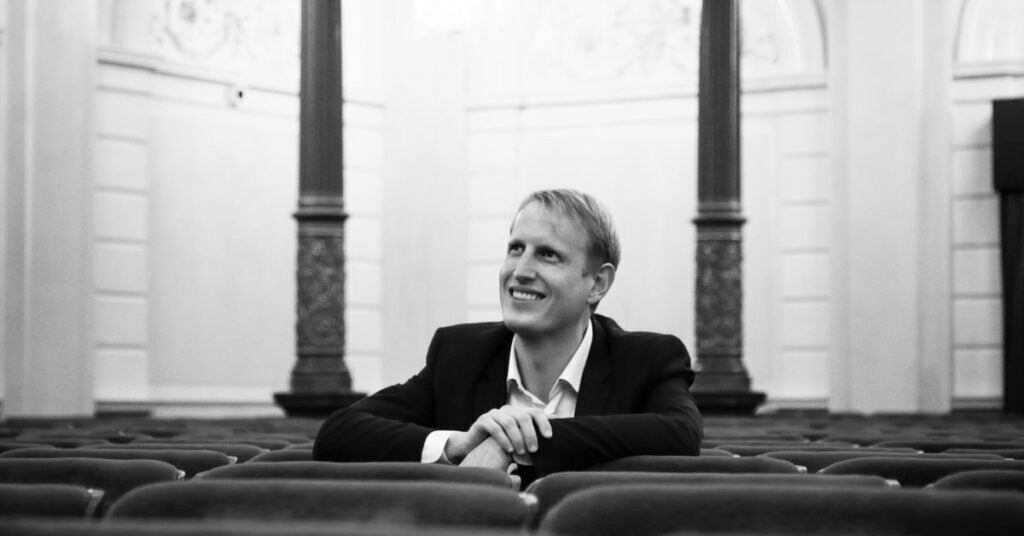
When the first lockdown in The Netherlands occurred, in March 2020, Noordhof quickly figured they had to do ‘something online’. To keep the audience engaged, they had artists live stream performances from their own home, as well as from the empty concert hall. However, reality quickly kicked in. “We can’t just give away concerts. We’re a company as well, we need to generate revenue.”
Funds to set up an entirely new operation and move online were not available. Their first online concert was therefore produced in-house, by people with little experience in that particular field. “The first review in a big Dutch newspaper said that the ‘recordings were a little flat’. Luckily, a sponsor came through and offered us a good deal on recordings. At first, I was sceptical. I wondered who was going to purchase a ticket for an online concert. But recently we sold 3500 tickets for one concert. We’ve now realised there is an entire market out there.”
International Theater Amsterdam accelerated its plans
At the Internationaal Theater Amsterdam (ITA), they faced similar challenges. ITA was forced to close the doors of the theatre in the heart of Amsterdam, they had to explore other ways to keep going. Wouter van Ransbeek, creative director of ITA, says they were already exploring online options. The pandemic accelerated these ideas into ITALive: an online streaming platform. “It’s a beautiful tool to spread our work broader. Geographic location won’t mean anything anymore, which is great because our capacity to travel is limited. ITALive is now our third stage, next to the two halls in the theater, and will have its own programming”
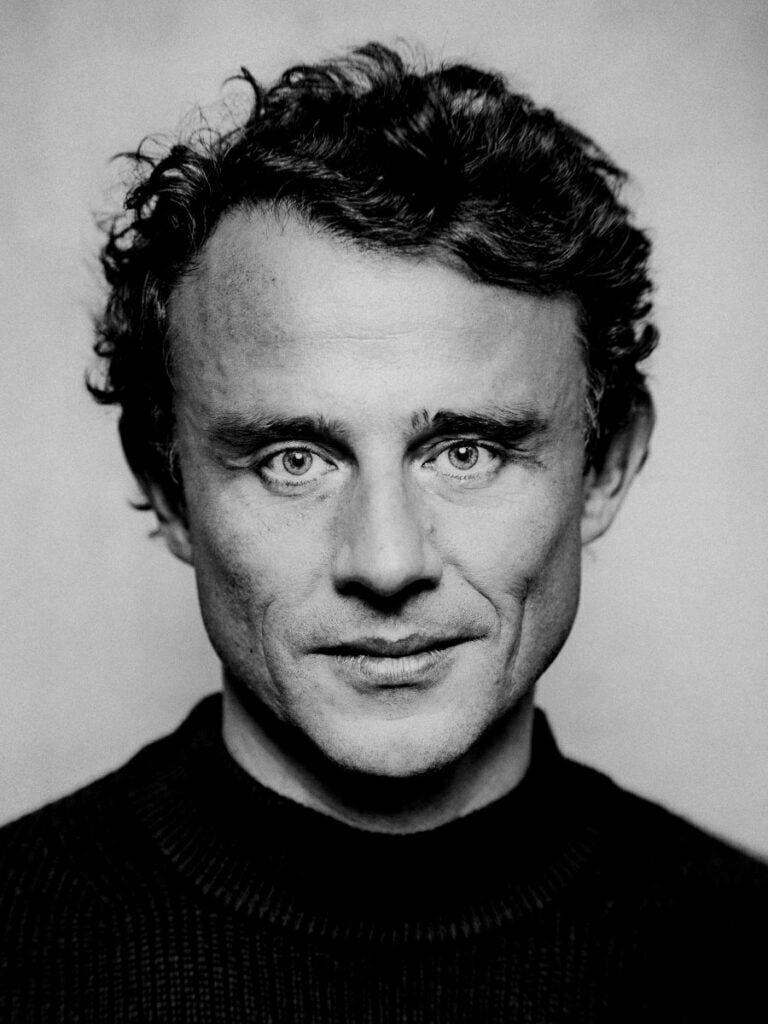
ITA, born in 2018 out of a fusion between Stadsschouwburg en Toneelgroep Amsterdam, has had international ambitions from the start. Not only are they hosting performers from all over the world in their theatre in Amsterdam, but they also perform all over the world. Travelling as a group is a cost and labour intensive job. Performing online takes away several limitations.
Setting the digital stage
That doesn’t mean it’s easy. Just before COVID hit, ITA was getting ready to show their work in cinemas in the country, says Van Ransbeek. But these had to close as well and ITA had to scratch that plan. The silver lining was that they were at least prepared. “Our initial research was all done pre-COVID”, says Van Ransbeek. “During the lockdown, this allowed us to set up the digital stage a lot faster.”
There still were many challenges, says Van Ransbeek. “The cost of setting it up, getting the right people, with the right know-how. We started with a third-party production company, but during the summer we decided to become our own producer.” ITA hired cameramen and directors with experience in live sports or pop concerts.
As Van Ransbeek explains it, he wanted them to be able to ‘live in the moment’. DIY-ing the whole thing proved to be extra challenging, but also extra rewarding. “We gained a lot of knowledge real fast”, says Van Ransbeek. “It meant we could now stream our plays for about one-eighth of the previous cost.”
Loyal partners to lean on
ITAand its ensemble can fall back on a lot of loyal contributors, which allows them to cover the costs. Maurits Musch, Head of Development at ITA, also points to the corporate partners they are closely working with. “This is a time we can really lean on them. For instance, we have a good DNA match with Accenture when it comes to innovation and digitisation. Their expertise gave us a push. We did it ourselves, but they helped us out. Just like we help them out by sharing our expertise, like giving their consultants training in giving presentations or public speaking. We try to utilise each others’ strengths.”
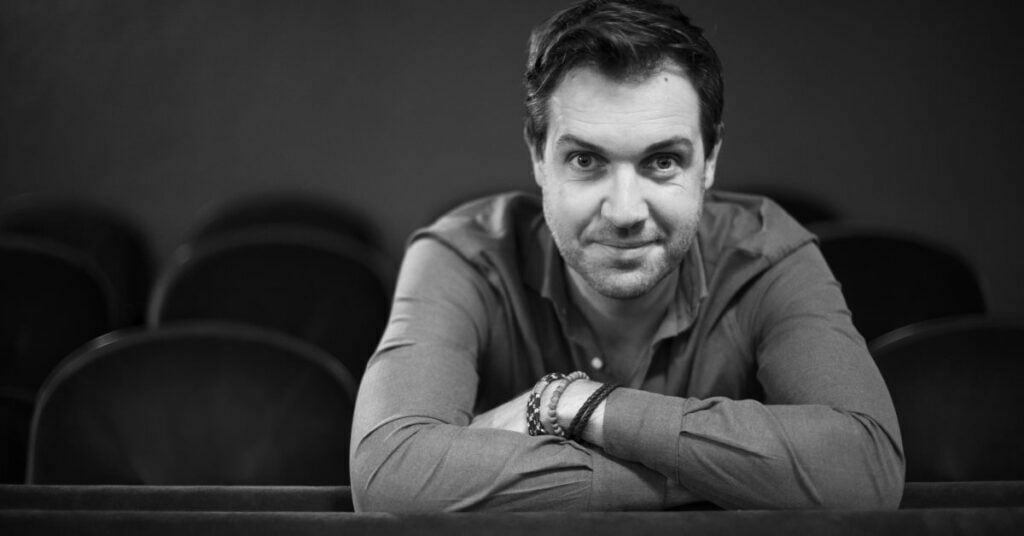
The hard work and uncertainty paid off. The Guardian called ive’s showing of ‘Weg met Eddy Bellegueule’ a four-way triumph. Their live stream of Roman Tragedies received raving reviews. According to one of the largest Dutch newspapers NRC, it gives the audience ‘a wow feeling. ‘It’s becoming a genre in itself’ they said of the production, where the cameramen capturing the spectacle were also part of the decor.
Lonneke van Straalen’s new vision on classical music
While large institutions were able to tap their partners to reinvent stage play or concerts, the artists themselves had to find ways to adapt on their own. With theatres or stages forced to close, many found themselves with far less work. For Lonneke van Straalen, violinist, cultural advisor and coach and mentor at the Royal Conservatory in The Hague, that meant she had to get creative. With her own collective Pynarello, she’s disrupting the traditional idea of what classical music can be.
Van Straalen acknowledges the world of classical music is not the most cutting-edge when it comes to innovation. The adage of moving fast and breaking things will not work. “We’re trying to see how certain things can be done differently.”
Pynarello plays it differently
Van Straalen’s classical music ensemble Pynarello does so by ditching the conductor of the orchestra, thus creating a flat organisational structure. “It means nobody is the boss. We create a shared musical idea. It may take a little bit more time, but it does result in a product that everyone will support.” Pynarello also did away with sheet music, making sure all musicians are fully involved in what they play.
The collective also incorporates other art forms, like theatre, in their shows. And by allowing musicians to play standing up, wearing their own clothes and generally being themselves, Pynarello feels less like an orchestra, more like a band. Something especially younger people can easily identify with. Van Straalen: “We do a lot. But the quality of the music is leading.”
Essential innovation
The innovative mindset with which Van Straalen approaches her classical music proved essential when last years’ lockdown cleared their busy schedule overnight. “We had to look at what was still possible. Looking at small outside venues. Or occupy a large venue with only 30 people. One of the things we started was Tour de Pynarelli. The audience travelled on bicycles back and forth between concert venues where local musicians would play for them.”
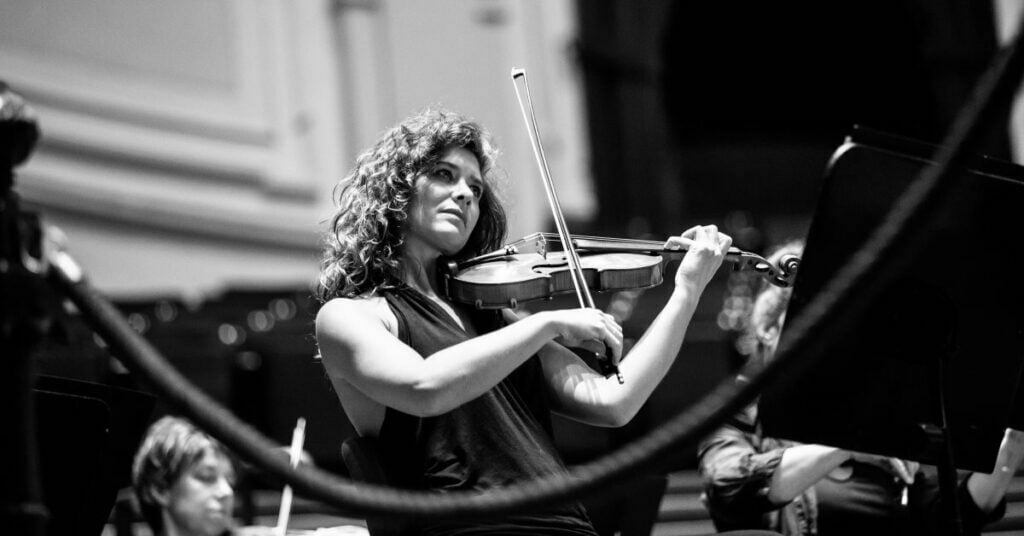
“Many musicians had to re-invent themselves by looking at the possibilities”, says Van Straalen. Some of the new initiatives may prove to be permanent. I really hope we can keep giving concerts outside the traditional concert venues, to attract a more diverse crowd.”
What about the shift to online shows, like ITA and Concertgebouw are making? “During the pandemic, when people couldn’t touch each other, a new word emerged: skin hunger. I think people also have a similar hunger for music. A need to experience art, music and theatre live. You don’t realise that when everything is normal and you have access to these experiences.”
See it with your own eyes
Noordhof agrees on that part. Experiencing the grand atmosphere of the Concertgebouw is an experience impossible to translate to a screen. “Right now, live streams are no substitute for a live experience.” But they definitely play an important role in the classical music world. “They allow us to reach people we would’ve never gotten to come and watch a show. And when you recognise the concert hall from live streams, you want to see it with your own eyes. It will serve as an accelerator for the sale of offline concerts”.
Read also: How innovation and scale go hand in hand, say Industry & Infrastructure experts of Blue Tulip Awards
The pandemic not only forces Noordhof to look at the possibilities of the internet, but it also makes him reevaluate their offline offering. “COVID forced us to experiment with time slots. It was born out of necessity when last year we had to limit our capacity. Instead of hosting an audience of 2000, we could only fit 350. So we did a shorter show twice an evening. It turns out, many people are interested in shows that last only one hour.”
The third stage
At ITA, live streams will remain a permanent fixture. “Our theatre has two separate stages”, says Musch. “Due to COVID, we added a third stage, the online one.” Van Ransbeek adds: “Our plan was always for a hybrid setup. For instance, we’re pretty well-known in Seoul. But we can only go there maybe two or three times a year. That makes it hard to build an audience. By adding ITALive to the mix, those people can see much more of us.”
However, the hunger for experiencing live art, theatre and music will remain. And with the world slowly re-opening, we might be close to satisfying that hunger once again. “For long, culture has not been treated as a basic need, but I think a big part of it is”, says Van Straalen. She is scheduled to record one of the last ‘Empty Concertgebouw Sessions’ before the venue will open its doors again.
Despite all the misery COVID brought around the world, Van Straalen thinks it gave the cultural world a push and set it in motion. “I hope the sector can keep innovating while maintaining all the beautiful things it is already producing. We don’t have to break all the rules, but it’s good to stretch its limits. We always have to keep an eye on the needs and desires of the times we live in.”
Here’s how to build one that doesn’t, according to this expert…

